Psychedelic-Assisted Therapy
Treatment & Research In PsychedelicsSM (TRIPSM) at Pacific Neuroscience Institute® (PNI®) has two paths that are available to patients. We serve all California communities.
NOTE: While there has been much excitement over the potential of psychedelic-assisted therapy to resolve mental health issues, it is important to note that psychedelic-assisted therapy (PAT) is still being studied in clinical trials for specific indications and patient groups to determine their impact and safety. Given that these powerful mind-altering medicines do carry some risks to patients, our TRIP team is committed to ensuring patient safety and well-being. Using an in-depth assessment process, we make sure that a given psychedelic medicine approach is appropriate for a given individual and their issues, and that potential risks of PAT are thoroughly discussed with each patient.
What is Psychedelic-Assisted Therapy?
In psychedelic-assisted therapy, a psychedelic medicine combined with psychotherapy and counseling, acts as a catalyst to enhance self-exploration, and accelerate the psychotherapy process by allowing patients to better access their subconscious, address core underlying issues, and fortify their capacity to heal emotionally.
Background
The potential for plant and fungal medicines to achieve altered states of consciousness and ultimately profound, and sustained changes in insight, mood and behavior was recognized and first used by indigenous cultures in shamanic and other healing rituals for millennia. PAT for treating mental health disorders was studied extensively and safely in thousands of patients in North America in the 1950’s and 1960’s. Its use faded rapidly due to the Controlled Substances Act in 1970, but there is a renaissance in psychedelic-assisted therapies that has been gaining momentum since the 1990’s.
Legal Status
Currently, ketamine is the only FDA-approved drug with psychedelic properties available to mental health providers for off-label use outside clinical trials. Other psychedelic medicines such as psilocybin (from “magic” mushrooms), LSD, MDMA (Ecstasy), N, N-Dimethyltryptamine (DMT), and 5-MeO-DMT are categorized as Schedule 1 substances by the DEA, making them illegal and inaccessible for clinical practice (although there are exceptions through state or municipal legislation in Oregon and Colorado for psilocybin, and some specific religious exemptions for ayahuasca). Consequently, the surest avenue to render these potentially life-altering treatments accessible to the general public within existing healthcare systems, and eventually eligible for insurance coverage, is via clinical trials that establish their efficacy and safety. With the immense scale of the mental health crisis both in the United States and worldwide, coupled with the limited effectiveness of current therapies, continued assessment of PAT through carefully conducted clinical trials at an accelerated pace is imperative.
Overview of Psychedelic-Assisted Therapy
Psychedelic-assisted therapy aims to induce a transient but profound altered state of consciousness to address mental health issues, and to ultimately alter one’s outlook and behavior. With its roots in shamanic healing cultures dating back thousands of years, PAT with its “set and setting” model (described below), is an expansive psycho-spiritual approach that seems to facilitate a “reset” of the mind and promotes structural and functional brain changes. Notably, of the most studied psychedelic medicines (psilocybin, LSD, MDMA and ketamine), each has different mechanisms of action, effects, and possible indications. Please see the table below and our review article for more detailed information.

The Challenge of Mental Health Issues
One commonality of mental health disorders is that many patients often feel stuck in repetitive or ruminative cycles that may include depression, anxiety, addiction, cravings, or other harmful behaviors or thoughts. Currently prescribed medications (like antidepressants and anti-anxiety drugs) may reduce some symptoms temporarily, but durability can be limited, and side-effects are common including emotional blunting. Psychotherapy aims to change unhealthy thoughts and behaviors, but this process can be slow and may never achieve the breakthroughs needed to produce sustained positive change in one’s life.
Set and Setting
One of the most important concepts around the use of psychedelic medicines for addressing mental health issues is that of set and setting. Set refers to the mindset of the patient including their current state of mind and one’s life history. Setting refers to the environment in which the medicine session or “journey” occurs including the physical space, music, and the psychedelic guides who prepare and accompany an individual for their psychedelic experience. With experienced psychedelic guides in a supportive and trusting setting, that includes proper screening and preparation before the medicine journey and counseling after the journey (“integration”), psychedelics can allow patients to better access their subconscious, reframe and address their core issues, and ultimately fortify their inner capacity to heal emotionally and spiritually.
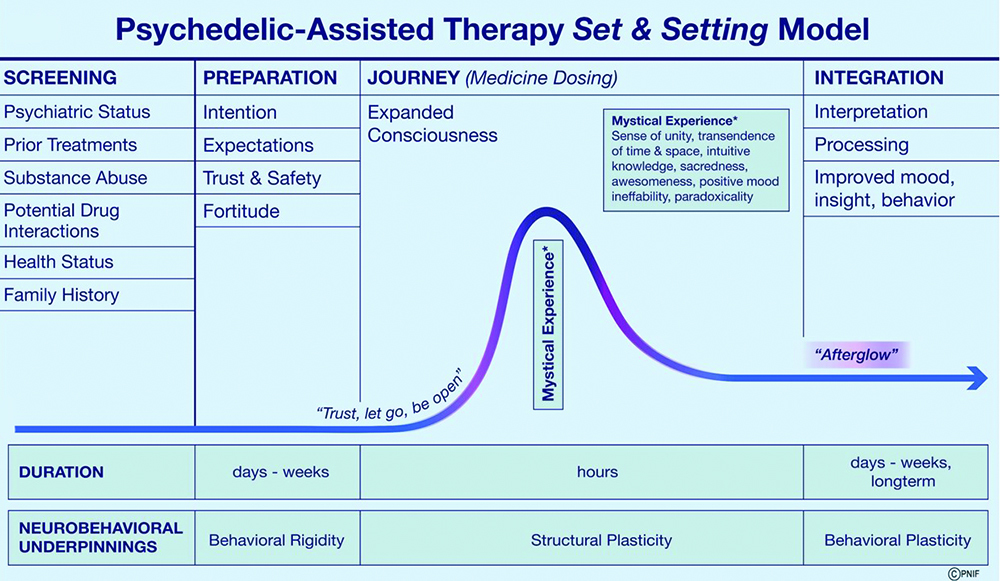
Psychedelic-assisted therapy is akin to a surgical procedure, the success and safety of which depends on experienced guides, patient screening and preparation, an optimized “set and setting,” safety protocols, and rigorous post journey psychological counseling (integration). Depicted are the phases in current clinical trials of patient screening, preparation, journey, and integration.
Psychedelic-Induced Neuroplasticity
While still an area of intense research, psychedelics such as psilocybin, LSD, MDMA, and ketamine are considered neuroplastogens that induce structural and functional brain changes, aiding the brain in forming new connections via neurogenesis (generation of new neurons) and synaptogenesis (formation of synaptic connections between neurons).
During the psychedelic experience which may last several hours, the processes that typically restrict or funnel our neural systems related to cognition, perception, emotion, and self-perception are loosened. Under optimal set and setting conditions, this loosening effect seems to allow different brain regions to reconnect in positive ways and to re-establish healthier more functional neural networks. This so-called “reopening of critical period plasticity” may last for days to weeks after administration, long after the psychedelic mind-altering effects have subsided. This seemingly more flexible and malleable critical period may provide a unique therapeutic time window to literally change the brain and mind in favorable and durable directions for a wide variety of psychiatric and neurological disorders. With a set and setting framework of psychological support, many patients may experience a significant reduction in symptoms, becoming unstuck and can often achieve a personal transformation.
What to Expect During Psychedelic-Assisted Therapy
Psychedelic-assisted therapy involves administering a psychedelic medicine to a patient under clinical supervision to trigger an altered state of consciousness and in some instances (particularly with the classic psychedelics like psilocybin and LSD) achieve a mystical experience. A course of treatment typically involves a program of psychotherapy with 1-3 psychedelic dosing sessions usually over 3-6 months.

Preparatory counseling sessions prepare the patient to get the maximum benefit from the psychedelic medicine session and subsequent integration counseling after the medicine journey.
The psychedelic dosing session is done in one of our special “trip rooms” designed to facilitate a safe and therapeutic journey. Patients lie on a couch, wear eyeshades, and listen to music that is typically of new age or classical genre, evocative and non-lyrical that builds to support the internal journey and help achieve a peak experience. Our experienced psychedelic guides accompany the patient for their journey and a physician monitors the patient for safety.

Pre-psychedelic dosing preparatory counseling sessions prepare the patient to get the maximum benefit from the dosing session and subsequent integration counseling.

The psychedelic dosing session is done in one of our special “trip rooms” designed to facilitate a safe and therapeutic journey. Patients lie on a couch, wear eyeshades, and listen to music to facilitate a focus on the internal emotional experience.

Afterward, patients complete a series of integration therapy sessions to assist them in applying insights from the dosing session to make changes in their lives. Additional psychedelic sessions may occur if needed.
Current Psychedelic Clinical Trials
Today, multiple clinical trials are underway testing a variety of psychedelic drugs including psilocybin, LSD, MDMA, MeO-DMT, and ketamine, for a diverse range of indications including major depressive disorder (MDD), treatment-resistant depression (TRD), post-traumatic stress disorder (PTSD), generalized anxiety disorder (GAD), end-of-life and palliative care setting, as well as alcohol, nicotine and other substance use disorders. These trials spanning the past 15 years, using a PAT approach has demonstrated immense potential across these different mental health conditions. For instance, Phase 2 clinical and pilot trials of patients administered psilocybin for MDD and TRD, terminal cancer, nicotine addiction, and alcohol addiction, along with Phase 3 trials of MDMA for post-traumatic stress disorder (PTSD), have demonstrated significantly higher success rates compared to existing therapies, with very low rates of serious adverse events.
Our PNI TRIP team has successfully completed two trials of PAT: one for major depressive disorder and another for alcohol use disorder (publications pending). We are presently nearing completion of enrollment for a multi-site trial involving LSD to address generalized anxiety disorder and have several other trials close to launching or in the planning stage for patients with brain tumors and existential distress, for TRD and MDD.
For more information about psychedelic-assisted therapy and psychedelic science, view our publication which aims to encourage broader multidisciplinary collaboration across the neurosciences to explore and help realize the transdiagnostic healing potential of psychedelics.
Videos about Psychedelic-Assisted Therapy
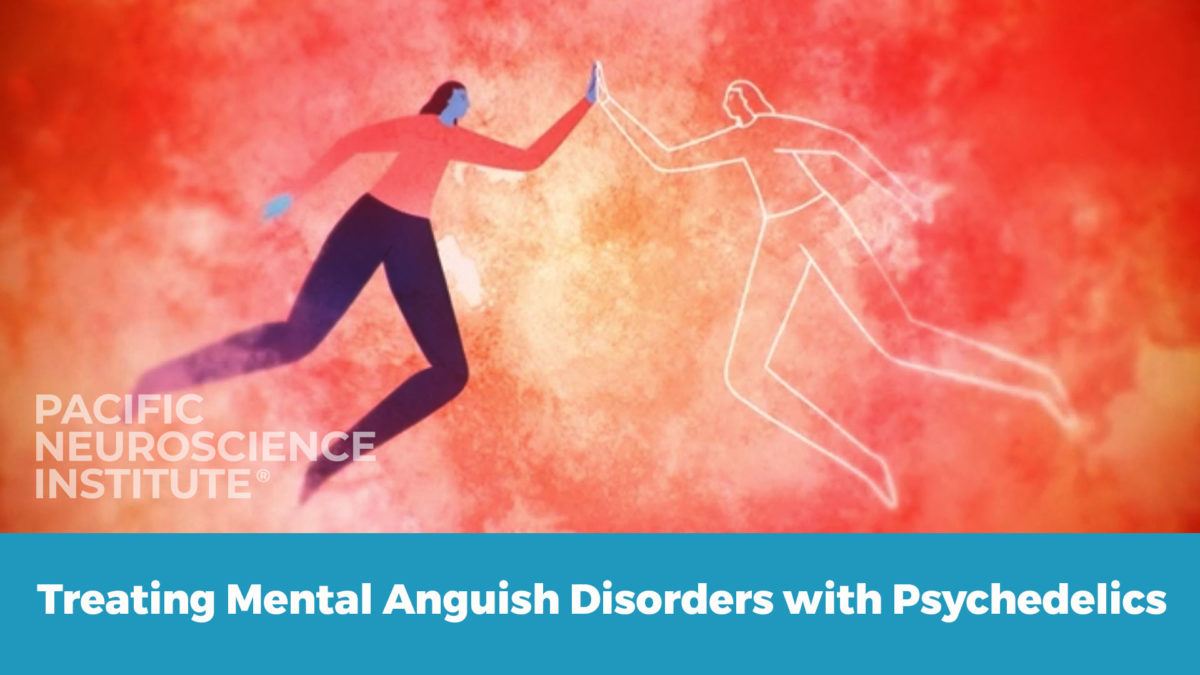 Treatment & Research In Psychedelics (TRIP) at Pacific Neuroscience Institute | Explainer
At PNI’s Treatment & Research In Psychedelics (TRIP) Program, we conduct clinical trails at the forefront of innovative and transformative medicine. TRIP, spearheaded by Daniel Kelly, MD and Keith Heinzerling,…
Treatment & Research In Psychedelics (TRIP) at Pacific Neuroscience Institute | Explainer
At PNI’s Treatment & Research In Psychedelics (TRIP) Program, we conduct clinical trails at the forefront of innovative and transformative medicine. TRIP, spearheaded by Daniel Kelly, MD and Keith Heinzerling,…
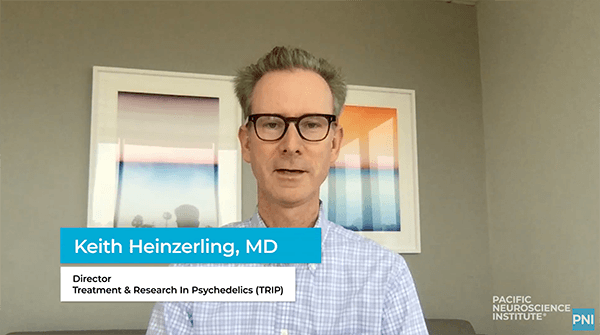 Psychedelic-Assisted Therapy at Pacific Neuroscience Institute
Dr. Keith Heinzerling is an addiction medicine specialist and Director of Treatment & Research In Psychedelics (TRIP) at Pacific Neuroscience Institute in Santa Monica, CA. Learn about how psychedelic-assisted therapy…
Psychedelic-Assisted Therapy at Pacific Neuroscience Institute
Dr. Keith Heinzerling is an addiction medicine specialist and Director of Treatment & Research In Psychedelics (TRIP) at Pacific Neuroscience Institute in Santa Monica, CA. Learn about how psychedelic-assisted therapy…
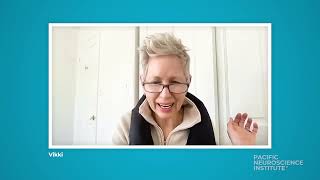 39. A Life-Changing Clinical Trial with Psychedelics | Vikki’s Grateful Patient Story
Vikki was walking her dog and listening to NPR in Santa Monica one day, when she heard an advertisement for an unusual medical trial. Pacific Neuroscience Institute was studying whether…
39. A Life-Changing Clinical Trial with Psychedelics | Vikki’s Grateful Patient Story
Vikki was walking her dog and listening to NPR in Santa Monica one day, when she heard an advertisement for an unusual medical trial. Pacific Neuroscience Institute was studying whether…
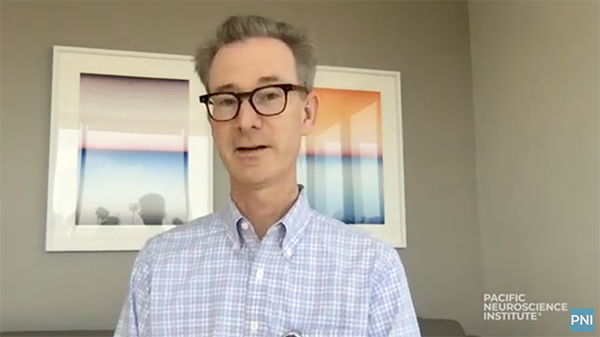 Psychedelic-Assisted Therapy with Ketamine at PNI
Using ketamine in a psychedelic-assisted approach, we treat people 16 years and older who are treatment-resistant or who wish to effectively tackle deep-rooted, unresolved trauma that has not been adequately…
Psychedelic-Assisted Therapy with Ketamine at PNI
Using ketamine in a psychedelic-assisted approach, we treat people 16 years and older who are treatment-resistant or who wish to effectively tackle deep-rooted, unresolved trauma that has not been adequately…
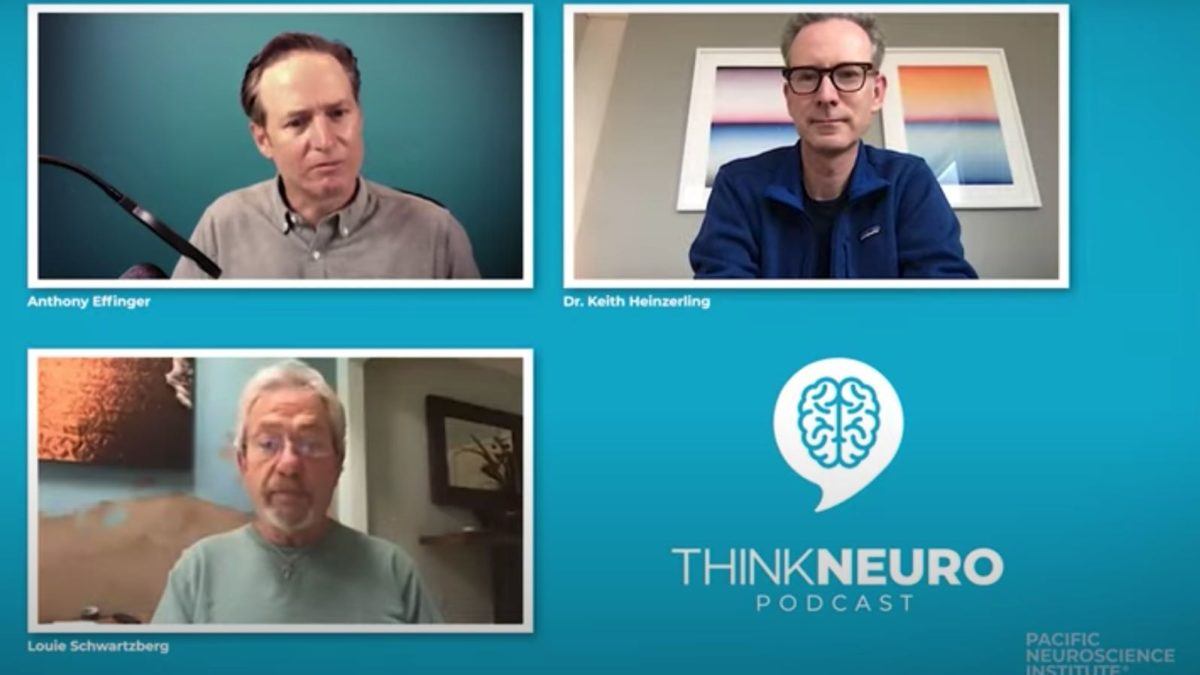 Think Neuro Podcast: The Promise of Psychedelics | Dr. Keith Heinzerling & Louie Schwartzberg
Addiction and depression are two of the most widespread conditions in all of medicine. After decades of research, doctors are still looking for alternatives for when medication and cognitive training…
Think Neuro Podcast: The Promise of Psychedelics | Dr. Keith Heinzerling & Louie Schwartzberg
Addiction and depression are two of the most widespread conditions in all of medicine. After decades of research, doctors are still looking for alternatives for when medication and cognitive training…
 Healing with Visual Art, Music & Mushrooms with Louie Schwartzberg (ft. Deepak Chopra & Dr. Dan Kelly)
https://fungiglobalsummit.com/ Voices from the Underground is The Deep Dive, Intimate Conversations with Thought Leaders & Fungi Experts hosted by Louie Schwartzberg. Get Premium Access and join Louie as he digs…
Healing with Visual Art, Music & Mushrooms with Louie Schwartzberg (ft. Deepak Chopra & Dr. Dan Kelly)
https://fungiglobalsummit.com/ Voices from the Underground is The Deep Dive, Intimate Conversations with Thought Leaders & Fungi Experts hosted by Louie Schwartzberg. Get Premium Access and join Louie as he digs…
 Helping Patients and Advancing Science With a Psilocybin Trial | Karina Sergi, MS, MFT
Helping Patients and Advancing Science With a Psilocybin Trial | Karina Sergi, MS, MFT
 Brain Injuries and Psychedelics
Ian McCall is a former professional MMA fighter who suffered from symptoms of traumatic brain injuries. After retirement, McCall experienced confusion, anger issues, depression, and suicidal ideation. Feeling hopeless, he…
Brain Injuries and Psychedelics
Ian McCall is a former professional MMA fighter who suffered from symptoms of traumatic brain injuries. After retirement, McCall experienced confusion, anger issues, depression, and suicidal ideation. Feeling hopeless, he…
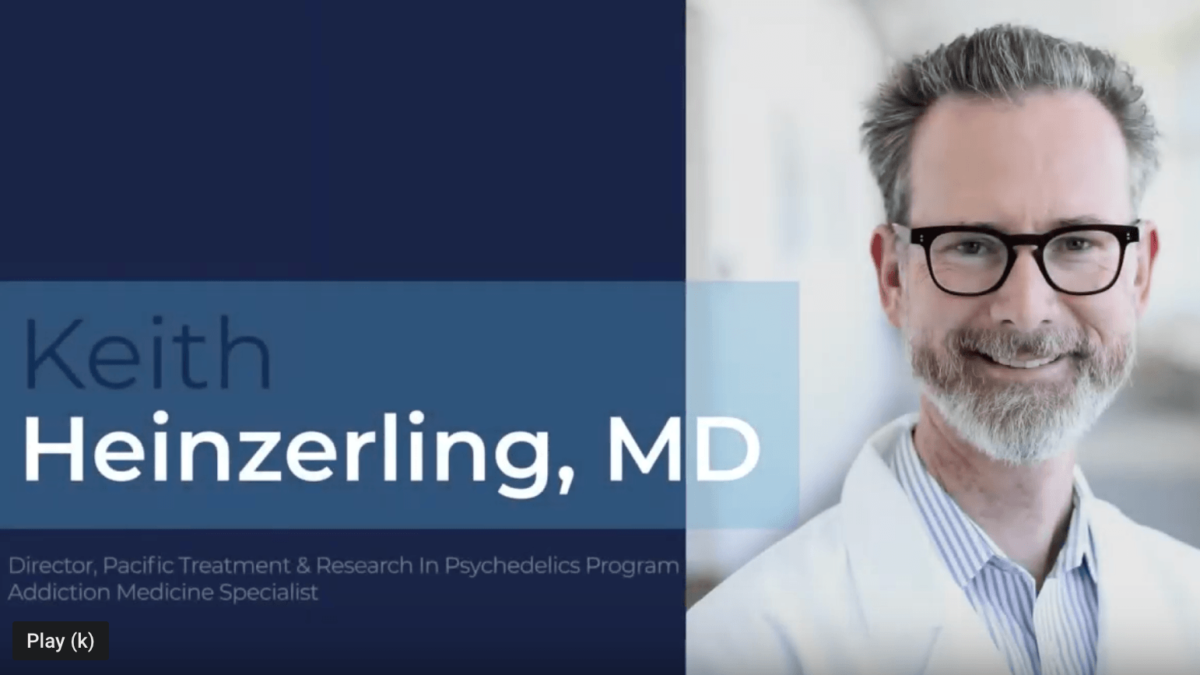 Meet Dr. Heinzerling
Dr. Heinzerling is the Director, Pacific Treatment & Research In Psychedelics Program; Internal Medicine – Addiction Medicine, Brain Health Center. He practices internal medicine and is an addiction medicine specialist…
Meet Dr. Heinzerling
Dr. Heinzerling is the Director, Pacific Treatment & Research In Psychedelics Program; Internal Medicine – Addiction Medicine, Brain Health Center. He practices internal medicine and is an addiction medicine specialist…
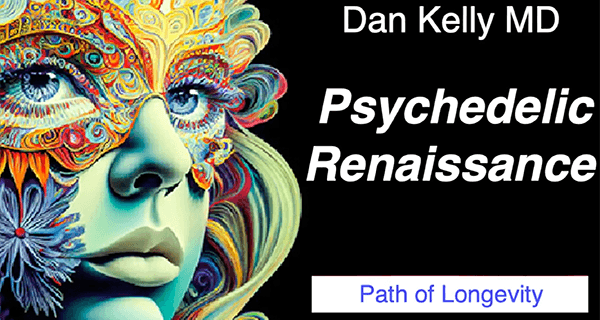 Psychedelics Renaissance | Dr. Daniel Kelly
Dr. Dan Kelly is the director and one of the four co founders of the Pacific Neuroscience Institute, a multispecialty group of over 35 physicians working across nine centers of…
Psychedelics Renaissance | Dr. Daniel Kelly
Dr. Dan Kelly is the director and one of the four co founders of the Pacific Neuroscience Institute, a multispecialty group of over 35 physicians working across nine centers of…
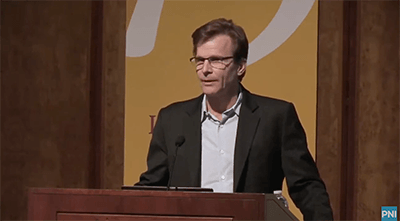 Psychedelic-Assisted Therapy: A New Dawn for Mental Health | Daniel Kelly, MD
Adapted from lecture at Claremont McKenna College Thu, September 16, 2021 Alum, Daniel Kelly, M.D. ’82, a neurosurgeon and neuroscientist, discusses the history, current state and future opportunities of psychedelic-assisted…
Psychedelic-Assisted Therapy: A New Dawn for Mental Health | Daniel Kelly, MD
Adapted from lecture at Claremont McKenna College Thu, September 16, 2021 Alum, Daniel Kelly, M.D. ’82, a neurosurgeon and neuroscientist, discusses the history, current state and future opportunities of psychedelic-assisted…
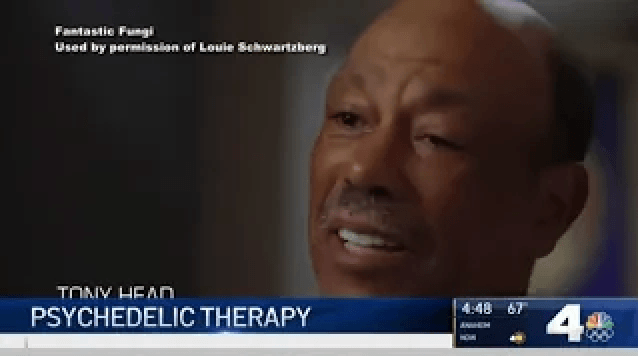 NBC News Features Treatment & Research In Psychedelics (TRIP) at PNI
NBC News features Pacific Neuroscience Institute’s Dr. Daniel Kelly & Dr. Keith Heinzerling, and filmmaker Louie Schwartzberg, and PNI’s groundbreaking psychedelic-assisted clinical trial for alcohol use disorder which launched in…
NBC News Features Treatment & Research In Psychedelics (TRIP) at PNI
NBC News features Pacific Neuroscience Institute’s Dr. Daniel Kelly & Dr. Keith Heinzerling, and filmmaker Louie Schwartzberg, and PNI’s groundbreaking psychedelic-assisted clinical trial for alcohol use disorder which launched in…
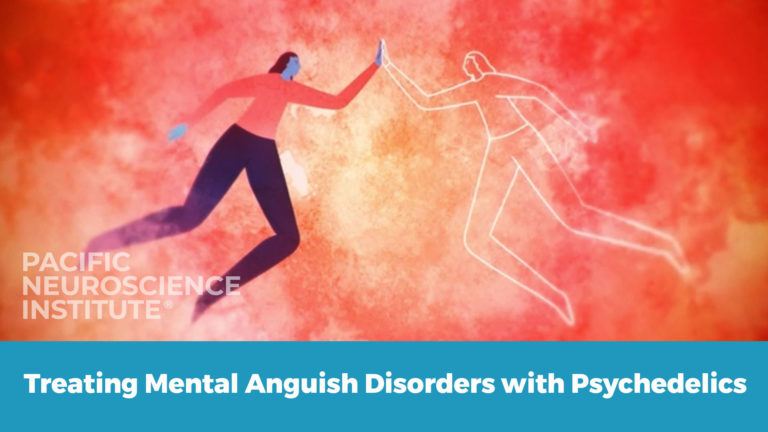
Treatment & Research In Psychedelics (TRIP) at Pacific Neuroscience Institute | Explainer

Psychedelic-Assisted Therapy at Pacific Neuroscience Institute

39. A Life-Changing Clinical Trial with Psychedelics | Vikki’s Grateful Patient Story

Psychedelic-Assisted Therapy with Ketamine at PNI
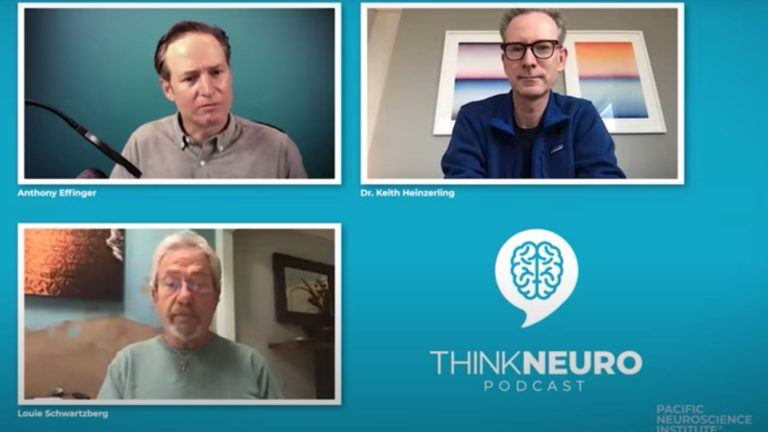
The Promise of Psychedelics | Dr. Keith Heinzerling & Louie Schwartzberg

Healing with Visual Art, Music & Mushrooms with Louie Schwartzberg (ft. Deepak Chopra & Dr. Dan Kelly) | Fungi Global Summit

Helping Patients and Advancing Science With a Psilocybin Trial | Karina Sergi, MS, MFT

Brain Injuries and Psychedelics
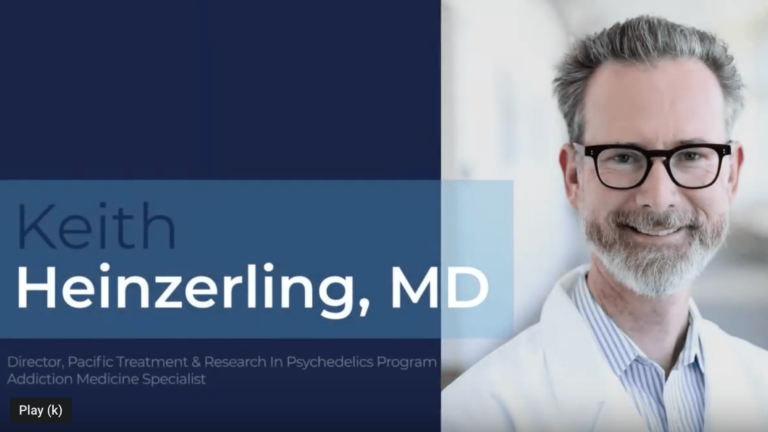
Meet Dr. Heinzerling

Psychedelics Renaissance | Dr. Daniel Kelly

Psychedelic-Assisted Therapy: A New Dawn for Mental Health | Daniel Kelly, MD

NBC News Features Treatment & Research In Psychedelics (TRIP) Program at PNI
Articles about Psychedelic-Assisted Therapy
If you or someone you know is in crisis, call the National Suicide Prevention Lifeline (Lifeline) at 1-800-273-TALK (8255), or text the Crisis Text Line (text HELLO to 741741). Both services are free and available 24 hours a day, seven days a week. The deaf and hard of hearing can contact the Lifeline via TTY at 1-800-799-4889. All calls are confidential. Contact social media outlets directly if you are concerned about a friend’s social media updates or dial 911 in an emergency. Learn more on the Lifeline’s website or the Crisis Text Line’s website.
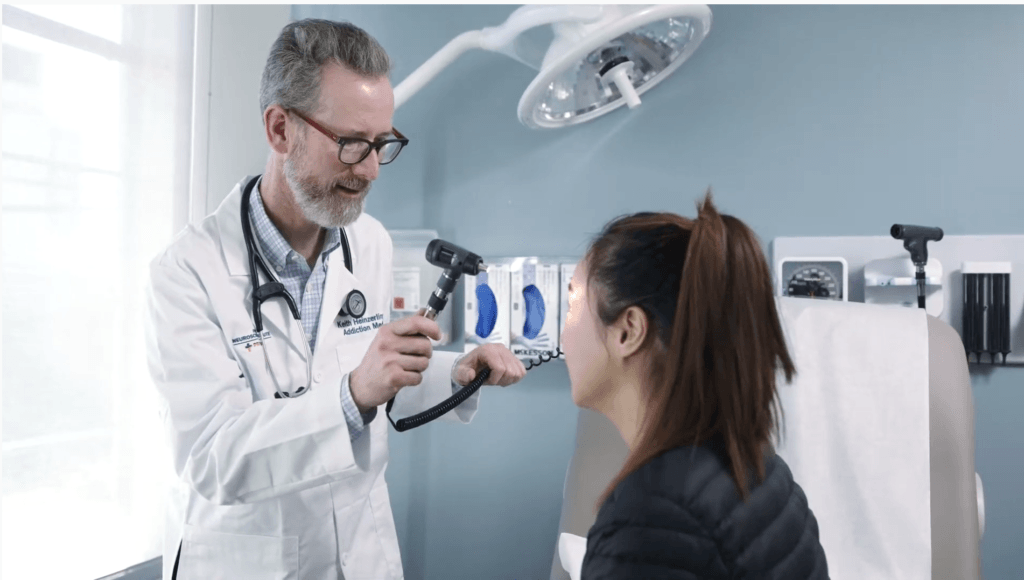
For more information about treatment and research studies at the TRIP program please contact Dr. Heinzerling.
Virtual Video Visits Are Available
Our specialists have consultation openings for new patients anywhere in California.
Treatment with Ketamine: 310-582-7612
Clinical Trials: 310-582-7611



